Are you looking to make a meaningful impact in the healthcare sector? Whether you're aiming to streamline operations, enhance patient care, or lead a team of professionals, crafting the perfect letter for healthcare management roles is crucial. Highlighting your experience and passion can set you apart in this competitive field. Dive in to explore tips and templates that will help you create an impressive application and open doors to your dream job!
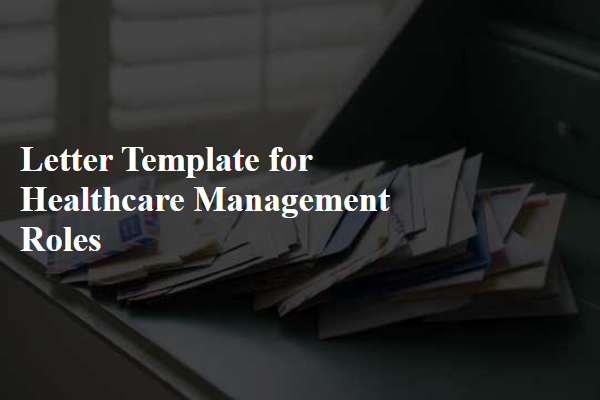
Professional tone and structure
Healthcare management roles require effective leadership, efficient resource management, and strategic planning to ensure the smooth operation of healthcare facilities. Professionals in this field navigate complex regulatory environments and promote quality patient care, often overseeing departments such as nursing, finance, or human resources. Essential skills include knowledge of healthcare laws, strong communication abilities, and proficiency in data analysis and budgeting. In addition, familiarity with electronic health record systems and healthcare information technology is crucial for integrating technology into patient care processes. Successful healthcare managers must also possess problem-solving skills and adaptability to respond to the evolving challenges of the healthcare landscape, including policy changes and emerging health trends.
Tailored skills and experience
Healthcare management roles require a diverse skill set and relevant experience tailored to the complexities of the industry. Leadership in healthcare settings demands expertise in regulatory compliance, particularly with regulations from organizations such as the Centers for Medicare & Medicaid Services (CMS) and the Joint Commission. A successful healthcare manager typically oversees multidisciplinary teams, ensuring effective communication and collaboration among professionals such as nurses, physicians, and administrative staff. Financial acumen is crucial, with a focus on budgeting and revenue cycle management, reflecting the need to optimize resources while maintaining quality patient care. Knowledge of electronic health record (EHR) systems, such as Epic or Cerner, facilitates efficient data management and supports clinical decision-making. Additionally, proficiency in quality improvement methodologies, including Lean and Six Sigma, enables healthcare managers to drive organizational excellence and enhance patient outcomes. Understanding healthcare policies and the evolving landscape of telehealth, particularly in response to events like the COVID-19 pandemic, further equips healthcare managers to navigate changing demands and implement innovative strategies.
Knowledge of healthcare regulations and policies
Healthcare management professionals must possess extensive knowledge of complex regulations and policies governing the healthcare industry, such as the Health Insurance Portability and Accountability Act (HIPAA) and the Affordable Care Act (ACA). Familiarity with state-level regulations ensures compliance with local laws, impacting patient care delivery in facilities across various states. Understanding reimbursement policies, including Medicare and Medicaid guidelines, is crucial for financial management and organizational sustainability. Mastery of accreditation standards from organizations like The Joint Commission ensures that healthcare facilities maintain high levels of quality and safety. Additionally, staying informed about the evolving landscape of telemedicine regulations and privacy concerns enhances the ability to implement innovative care solutions while adhering to legal requirements.
Leadership and communication abilities
In the realm of healthcare management, effective leadership is essential for fostering a collaborative environment among diverse teams comprising doctors, nurses, and administrative staff within hospitals like Johns Hopkins or Mayo Clinic. Individuals in this role must possess strong communication abilities to clearly convey policies, protocols, and patient care standards, thereby enhancing operational efficiency and staff morale. The integration of evidence-based practices into team discussions promotes informed decision-making and drives positive patient outcomes in dynamic healthcare settings. Moreover, conflict resolution skills are crucial for addressing issues that arise within interdisciplinary teams or between departments, ensuring a cohesive approach to healthcare delivery. Regular training sessions can also improve communication dynamics, aligning every staff member with the overarching mission to provide exceptional patient care while adhering to regulations set forth by organizations such as the World Health Organization.
Commitment to patient-centered care and continuous improvement
Patient-centered care focuses on individual patient needs, preferences, and values, ensuring that healthcare decisions align with patient expectations. Continuous improvement involves adopting methodologies such as Lean and Six Sigma to enhance operational efficiencies in healthcare settings, ultimately leading to higher quality outcomes. Healthcare organizations, like the Mayo Clinic in Minnesota, prioritize both aspects to cultivate a culture of excellence. As a result, patient satisfaction scores often reflect these efforts, with leading organizations reporting percentages above 90%. Additionally, the integration of technology, including Electronic Health Records (EHRs), allows for streamlined communication, contributing to overall care coordination and better patient experiences.
Letter Template For Healthcare Management Roles Samples
Letter template of feedback for healthcare management performance review
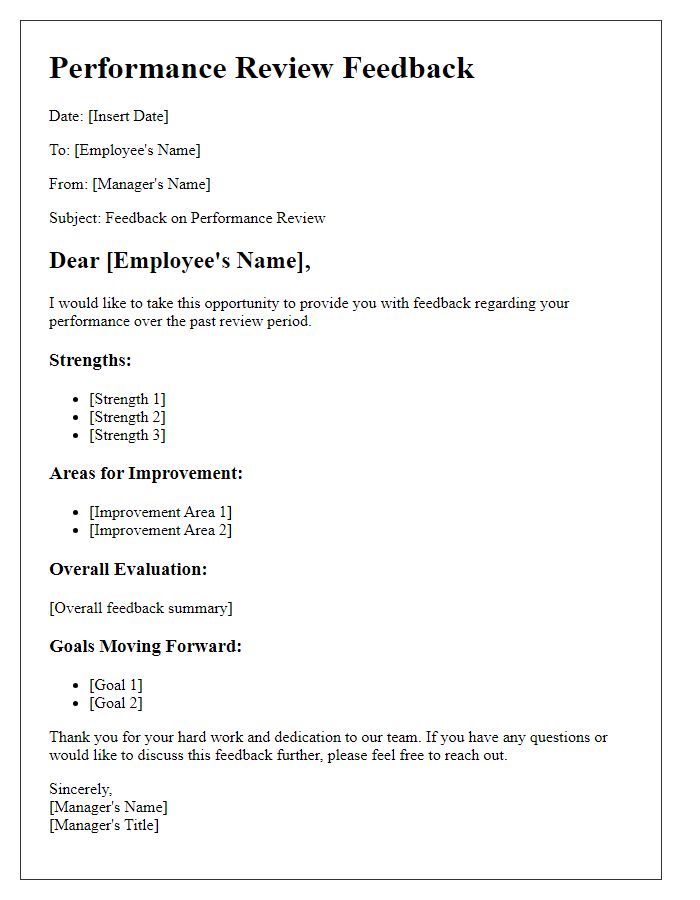
Letter template of networking for healthcare management career opportunities
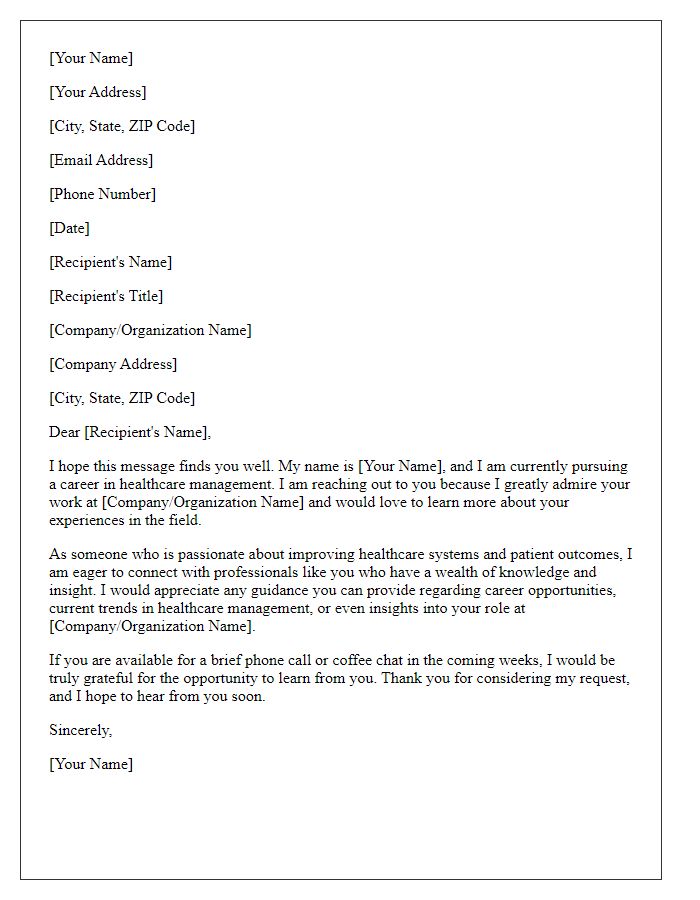
Letter template of request for informational interview in healthcare management
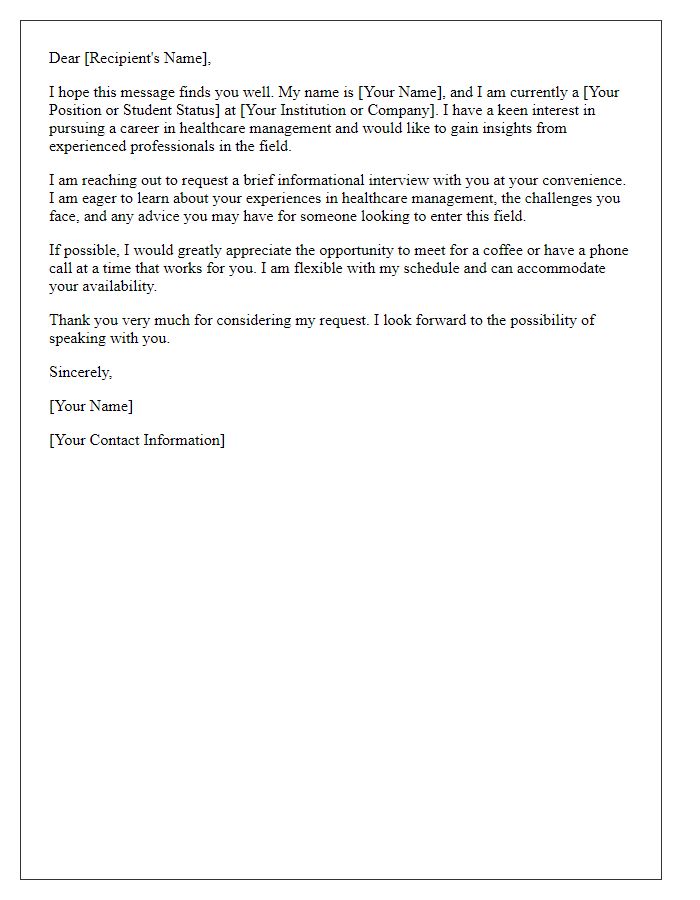

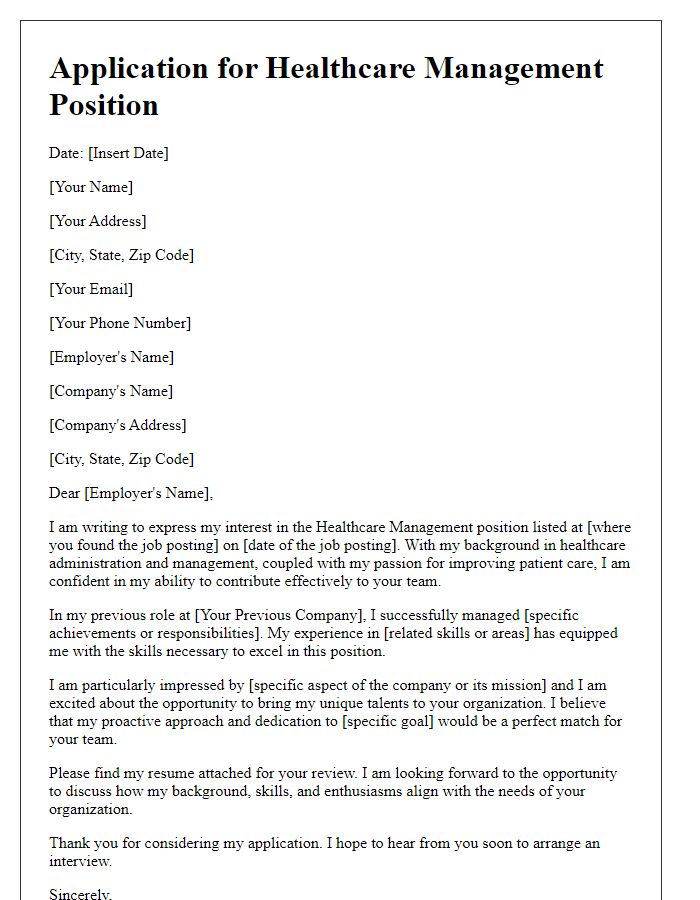
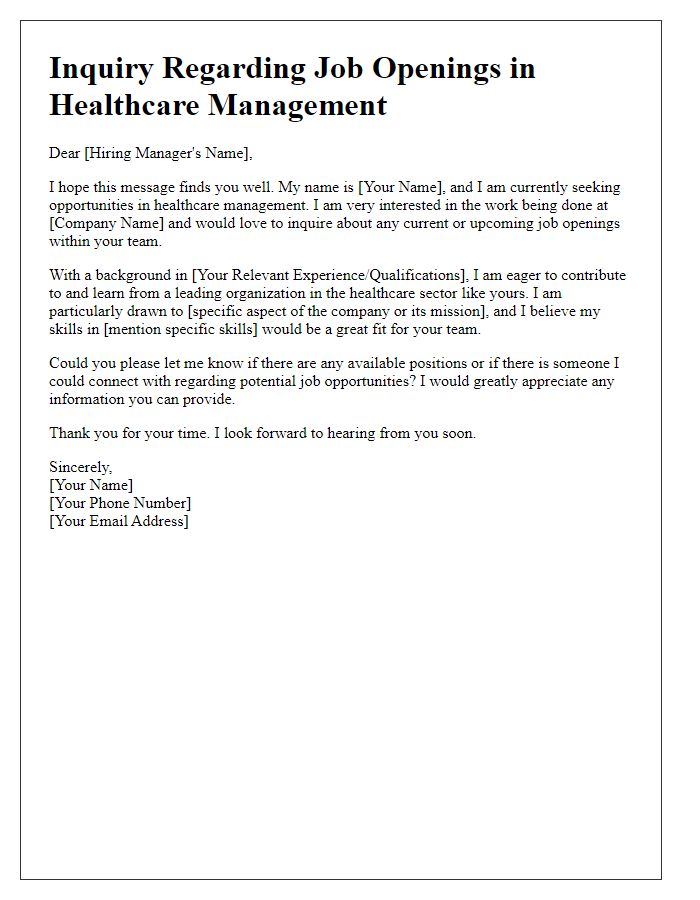
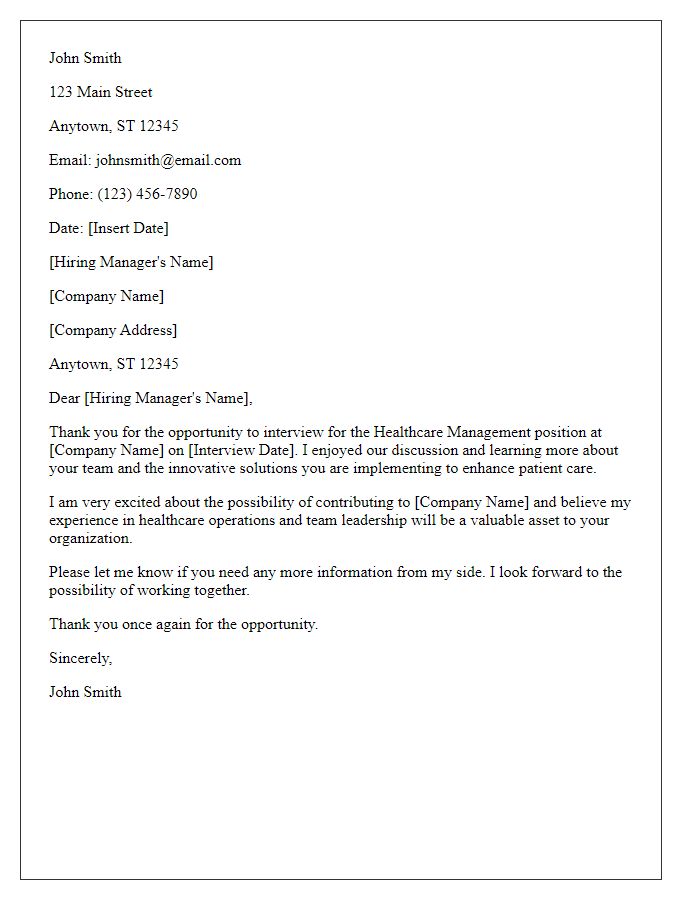
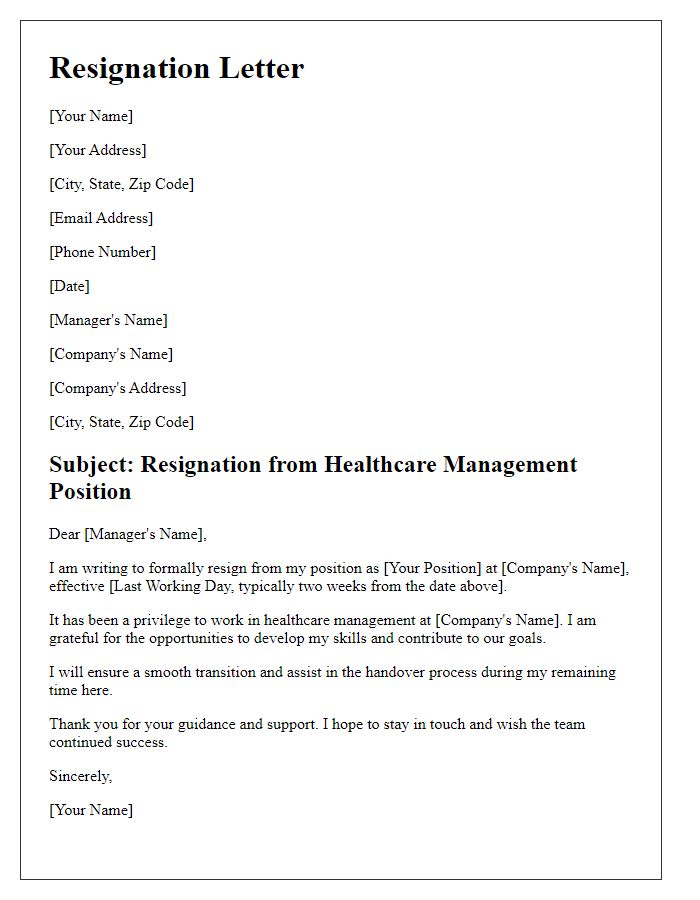
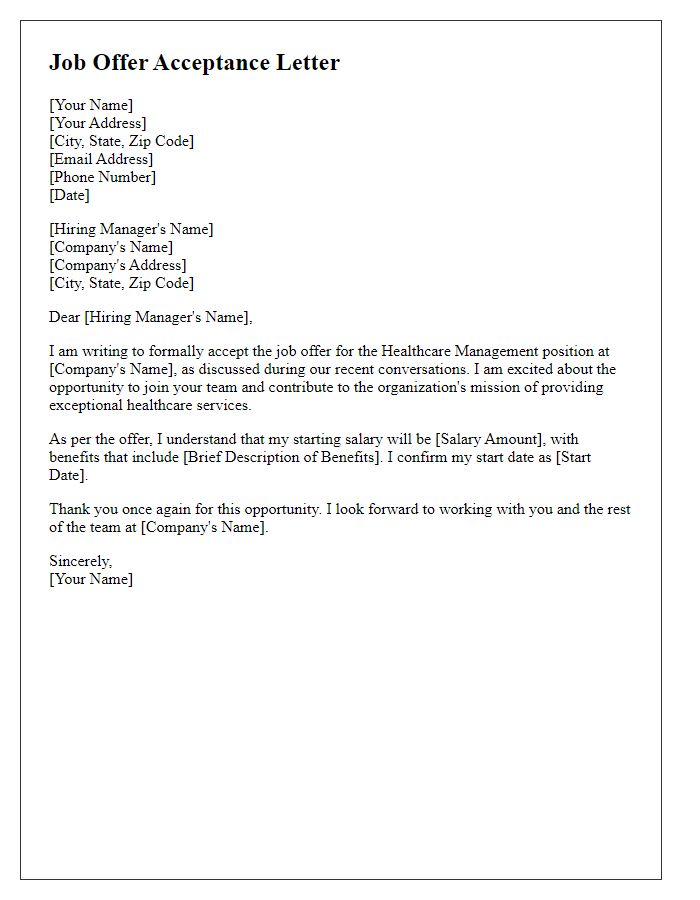
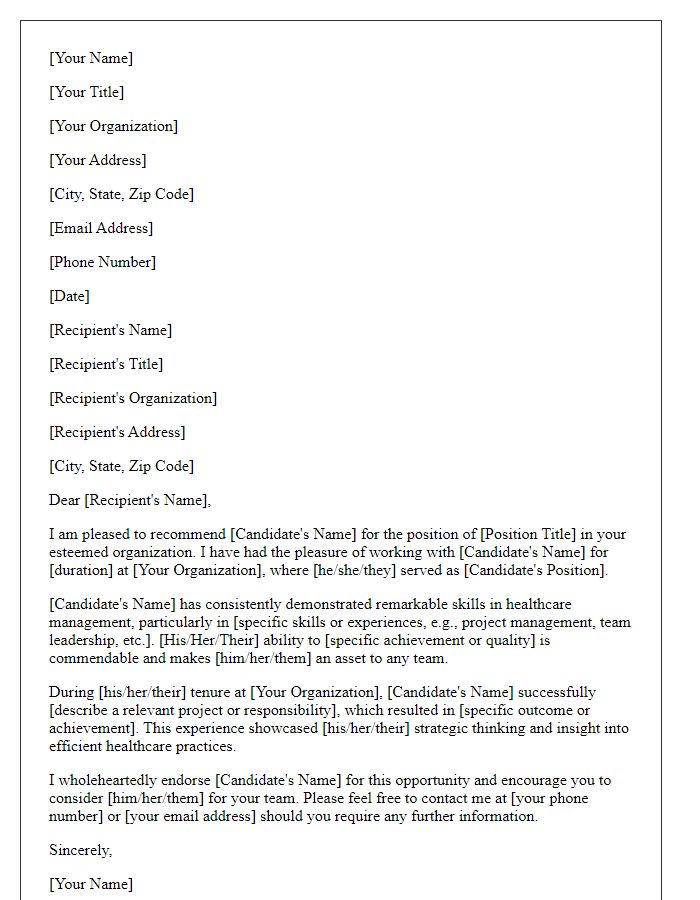
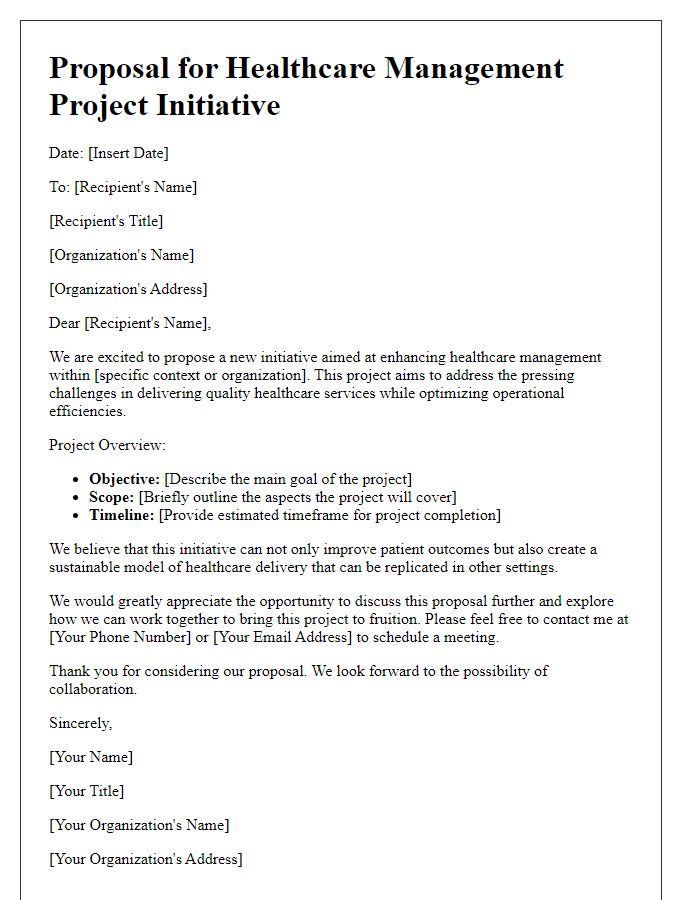

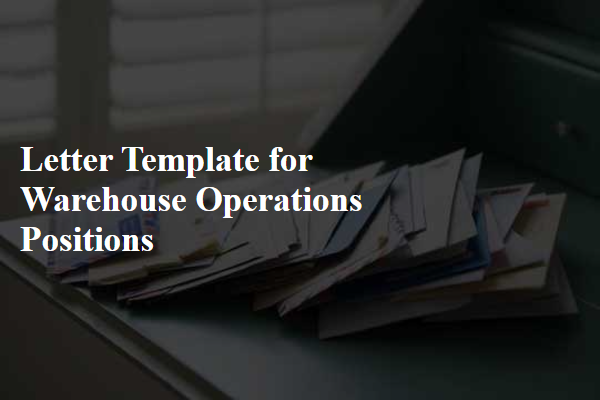
Comments